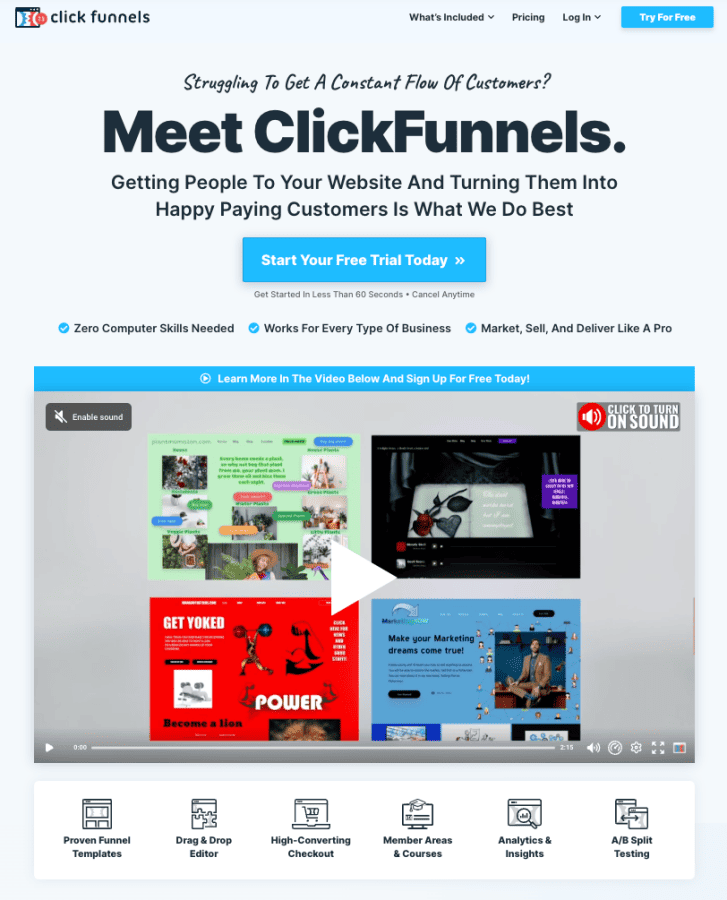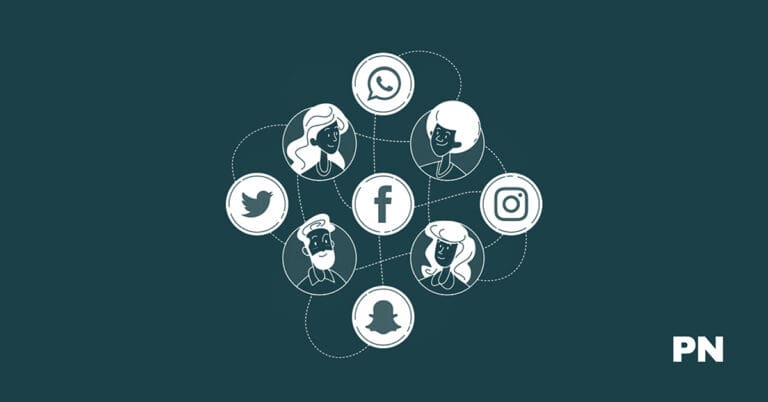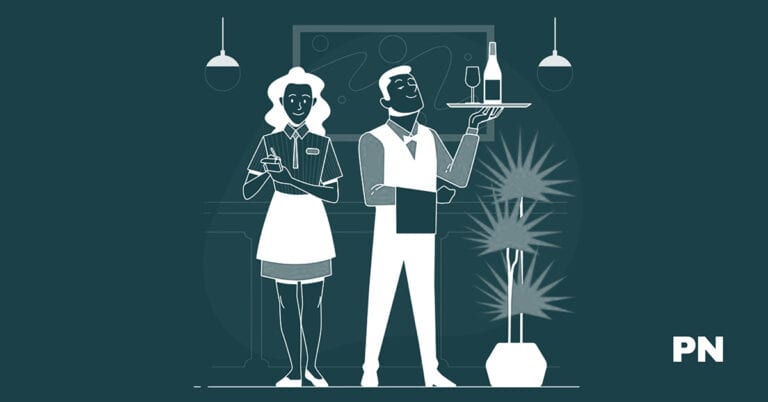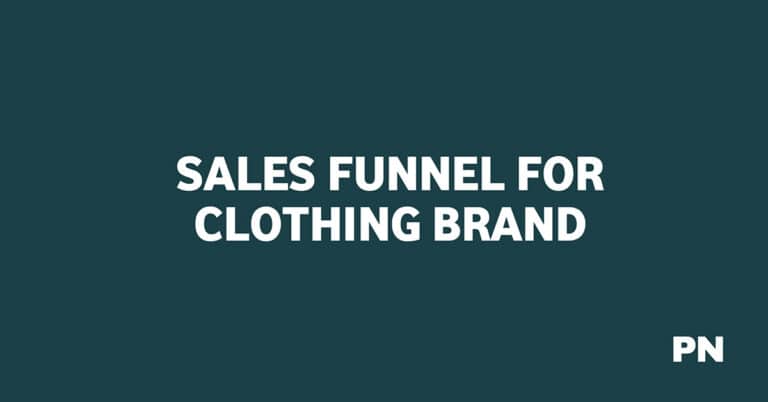Sales Funnel for Lawyers: A Comprehensive Guide
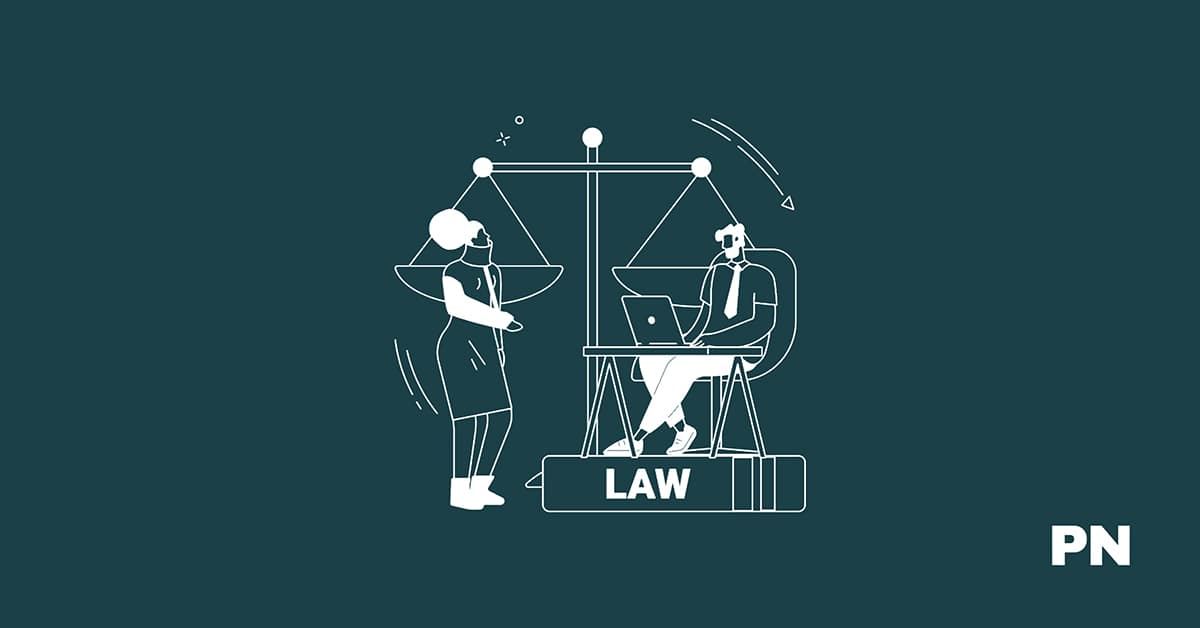
You’ve probably heard of sales funnels if you’re a lawyer looking to grow your practice.
A sales funnel is a marketing concept that describes a potential client’s journey from first hearing about your firm to becoming a paying client. By understanding this journey and the different sales funnel stages, you can create a strategy to attract more clients and increase your revenue.
Contrary to popular belief, sales funnels aren’t just for businesses selling products or services online.
Sales funnels can be particularly effective for lawyers and law firms. By creating a sales funnel tailored to your practice area and target audience, you can streamline your marketing efforts and attract more of the right clients.
In this guide, I’ll cover everything you need to know about creating a sales funnel for your law firm, from the basics to advanced strategies.
What is a Lawyer Sales Funnel?

As a lawyer, you need to attract new clients and retain them. A sales funnel is a marketing strategy that helps you do just that. It’s a visual representation of the customer journey, from the moment they become aware of your law firm to the point where they become a paying client.
A sales funnel for lawyers typically consists of several stages, including:
- Awareness: At the top of the funnel, the goal is to create awareness and attract the attention of potential clients. This is where you use marketing tactics like social media advertising, content marketing, and search engine optimization (SEO) to get your law firm in front of people who may need your services.
- Interest: You must keep their interest once you’ve attracted their attention. This is where you provide valuable information about your services, answer common questions, and build trust with potential clients.
- Decision: At this stage, potential clients are considering whether or not to hire your law firm. You need to provide them with the information they need to make an informed decision, such as testimonials, case studies, and pricing information.
- Action: The final stage of the funnel is where potential clients become paying clients. You provide them with a clear call to action, such as scheduling a consultation or signing a retainer agreement.
Why You Need a Lawyer Sales Funnel?
As a lawyer, you may wonder why you need a sales funnel. The answer is simple—to attract and retain clients. A sales funnel is a marketing strategy that helps you guide potential clients through the buying process, from awareness to purchase.
Without a sales funnel, your marketing efforts may be scattered and ineffective.
You may miss out on potential clients unaware of your services or not ready to purchase. A sales funnel helps you focus your efforts and resources on the clients most likely to convert.
One key benefit of a sales funnel is that it helps build brand awareness.
Creating a funnel tailored to your target audience can increase your visibility and reach a wider audience. This can help establish your brand as a trusted authority in your field, leading to increased referrals and repeat business.
Another benefit of a sales funnel is that it helps you build relationships with potential clients. You can establish trust and credibility with your audience by providing valuable information and resources at each funnel stage. This can help overcome objections and persuade potential clients to choose your services over your competitors.
Stages of the Lawyer Sales Funnel
A sales funnel is a marketing concept that outlines a potential client’s journey from the first point of contact to the final purchase.
For lawyers, a sales funnel is a crucial tool that helps them understand the client acquisition process, identify areas for improvement, and optimize their marketing and sales efforts to maximize their chances of securing new clients.
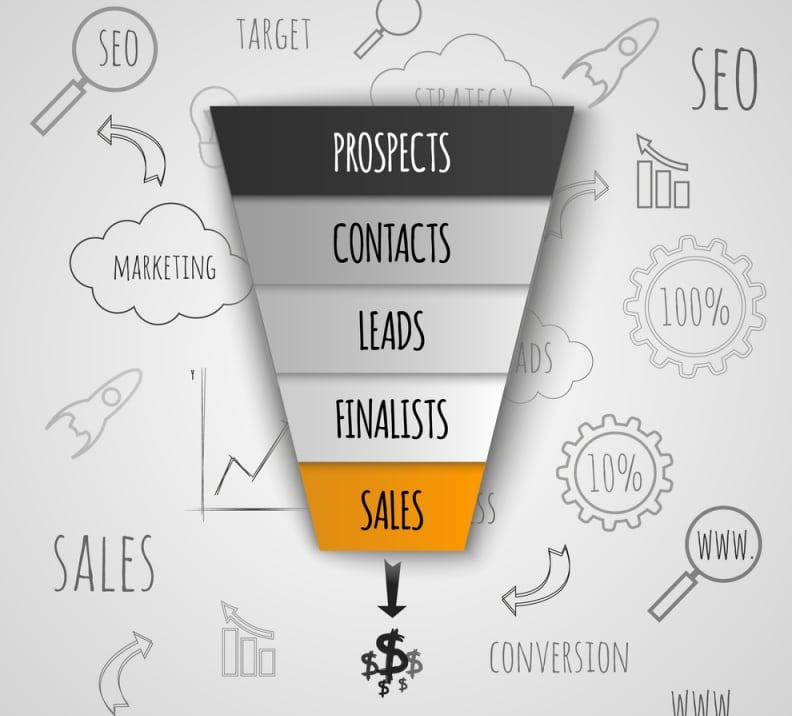
The lawyer sales funnel typically consists of several stages:
- The Awareness Stage (Top of the Funnel, TOFU)
- The Consideration/Evaluation Stage (MOFU)
- Purchase Stage (Bottom Of The Funnel)
- Post-Purchase
- The Repeat Purchase.
The Awareness Stage (Top of the Funnel, TOFU)
The Awareness Stage is the first stage of the lawyer sales funnel. At this stage, potential clients are not aware of your legal services or how you can help them. The goal of this stage is to create awareness and attract the attention of potential clients.
During this stage, you need to focus on creating content that educates potential clients about their legal issues and how you can help them. This content should be informative, engaging, and distributed across various channels, including social media, blog posts, and email newsletters.
This stage can be analogized to a billboard on the highway. The billboard grabs your attention and makes you aware of a product or service.
The Consideration/Evaluation Stage (MOFU)
The Consideration/Evaluation Stage is the second stage of the lawyer sales funnel. At this stage, potential clients know your legal services and are considering hiring you.
You must build relationships with potential clients and establish trust during this stage. You can do this by providing valuable information and resources to help them make informed decisions about their legal issues.
This stage can be analogized to a test drive of a car. You are considering whether or not to buy the car and want to ensure it meets your needs and expectations.
Purchase Stage (Bottom Of The Funnel)
The Purchase Stage is the third and final stage of the lawyer sales funnel.
At this stage, potential clients are ready to purchase and are looking for a lawyer to provide them with the necessary legal services.
During this stage, you must focus on closing the deal and converting potential clients into paying clients. You can do this by providing them with a clear and compelling call to action and making it easy for them to take the next step.
An analogy for this stage is that it’s like buying a car. You have done your research, taken the test drive, and are now ready to purchase.
Post-Purchase Stage
The Post-Purchase stage is the stage that comes after a client has made a purchase. This stage is crucial because it determines whether or not the client will become a repeat client or refer others to your legal services.
During this stage, you must provide excellent customer service and ensure the client is satisfied with your legal services. You can do this by following up with the client, addressing their concerns, and asking for feedback.
An analogy for this stage is that it’s like maintaining a car. You must take care of the car to ensure it runs smoothly and lasts long.
Repeat Purchase Stage
The Repeat Purchase stage is when a client becomes a repeat client or refers others to your legal services. This stage is crucial because it determines the success of your legal practice.
During this stage, you must maintain a positive relationship with the client and provide them with ongoing legal services. You can do this by staying in touch, providing valuable information and resources, and offering them discounts or other incentives to continue using your legal services.
An analogy for this stage is upgrading to a newer car model. The client is happy with their purchased car and wants to continue using the same brand and model.
The Lawyer sales funnel is a powerful tool for attracting new clients and building long-term relationships with them. By understanding the sales funnel stages and providing valuable content and excellent customer service, you can grow your business and achieve long-term success.
How Do I Create a Lawyer Sales Funnel?
Creating a sales funnel for your law firm can be daunting, but it is essential for attracting new clients and growing your business.
Here are some steps to help you create a successful lawyer sales funnel:
- Identify your target audience: The first step in creating a sales funnel is identifying your target audience. Who are your ideal clients? What are their pain points? What are they looking for in a lawyer? Understanding your target audience will help you create a sales funnel that speaks directly to their needs.
- Create a lead magnet: A lead magnet is a free resource you offer potential clients in exchange for their contact information. This could be a free eBook, a checklist, or a webinar. Your lead magnet should be something your target audience finds valuable and relevant to their needs.
- Build a landing page: A landing page is designed to convert visitors into leads. It should be focused on your lead magnet and include a clear call-to-action (CTA) that encourages visitors to download it.
- Create an email sequence: Once someone has downloaded your lead magnet, you should have an email sequence to nurture them and move them further down your sales funnel. Your email sequence should provide value, build trust, and encourage them to book a consultation.
- Offer a consultation: The final step in your sales funnel should be to offer a consultation with you or your team. This is where you can provide personalized advice and guidance to potential clients and convert them into paying clients.
Following these steps, you can create a lawyer sales funnel that attracts new clients, builds trust, and grows your business. Remember always to put your target audience first and provide value at every step.
What is The Best Funnel Software for Lawyers?
There are several options for sales funnel software for lawyers. However, ClickFunnels is the best option for lawyers looking to build sales funnels faster and scale their businesses easily.
One of the main reasons ClickFunnels is the best sales funnel software for lawyers is its law features.
ClickFunnels has a wide range of law-specific features, including customizable legal services templates, making creating a sales funnel for your legal practice easy. ClickFunnels’ templates are designed to help lawyers capture leads and convert them into paying clients.
ClickFunnels also supports upsells and downsells, an essential feature for lawyers wanting to increase their revenue.
With upsells and downsells, lawyers can offer additional services or products to their clients after they purchase. This feature is handy for lawyers who provide multiple services or products.
Another great feature of ClickFunnels is the availability of complimentary funnel templates.
These templates are designed to help lawyers create sales funnels quickly and easily. They are customizable, so lawyers can modify them to suit their needs.
ClickFunnels also has a robust CRM system that helps lawyers manage their clients and leads. The system is designed to help lawyers track their leads, follow up with clients, and manage their sales funnels. Also, ClickFunnels’ CRM system provides analytics and reporting tools, which help lawyers track the performance of their sales funnels.
Frequently Asked Questions
What is a funnel in the law business?
A funnel is a marketing strategy that guides potential clients through a series of steps toward becoming paying clients. It visually represents a client’s journey from initial contact with the law firm to becoming a paying client.
What are the key stages in developing a lawyer sales funnel?
The key stages in developing a lawyer sales funnel are:
- Awareness – where potential clients become aware of your law firm and its services.
- Interest – where potential clients express interest in your services and begin to engage with your law firm.
- Consideration – where potential clients evaluate your services and compare them to your competitors.
- Conversion – where potential clients become paying clients.
How do you create an effective lawyer sales funnel?
To create an effective lawyer sales funnel, you need to:
- Identify your target audience and their needs.
- Develop content that speaks to your target audience and their needs.
- Create landing pages that are optimized for conversion.
- Use email marketing to nurture leads and guide them through the funnel.
- Analyze and optimize your funnel to improve conversion rates.
How can I optimize my lawyer funnel for higher conversion rates?
To optimize your lawyer funnel for higher conversion rates, you should:
- Use A/B testing to test different variations of your landing pages and emails.
- Analyze your funnel metrics to identify areas for improvement.
- Use retargeting to re-engage potential clients who have dropped out of the funnel.
- Continuously improve your content to better speak to your target audience.
What metrics are crucial for analyzing the performance of a lawyer funnel?
The metrics that are crucial for analyzing the performance of a lawyer funnel are:
- Traffic – the number of visitors to your website and landing pages.
- Conversion rate – the percentage of visitors who become paying clients.
- Cost per acquisition – the cost of acquiring a new client.
- Return on investment – the revenue generated from your funnel compared to the cost of running it.
How do industry benchmarks influence lawyers’ conversion funnel performance?
Industry benchmarks can influence lawyers’ conversion funnel performance by providing a standard for comparison. By comparing your funnel metrics to industry benchmarks, you can identify areas for improvement and set goals for your funnel performance.
However, it is essential to remember that every law firm is unique and that your funnel performance may differ from industry benchmarks due to factors such as your target audience, services, and marketing strategy.
Wrapping Up
Congratulations!
You have learned everything you need to know about sales funnels for lawyers. With this knowledge, you can create a powerful engine to fuel your legal practice’s growth.
Remember that a sales funnel is not just about writing many words on a landing page. It requires more than building a landing page. You need to utilize a variety of marketing, sales, and branding techniques.
To create a successful sales funnel, you must understand your target audience, create a strong lead magnet, and use email marketing effectively. You also need to track your results and make adjustments as needed.
Following these steps, you can create a sales funnel that consistently attracts new clients and grows your legal practice. Good luck!
Disclosure: We may earn commissions if you buy via links on our website. Commissions don’t affect our opinions or evaluations. We’re also an independent affiliate of many platforms, including ClickFunnels, Kartra, GoHighLevel, Podia, Northwest Registered Agent, and others. We’re not employees of these services. We receive referral payments from them, and the opinions expressed here are our own and are not official statements of these companies.
